Marquette’s outline for the new strategic plan, which will guide its direction for the next five to 10 years, has been revised after a semester of student and faculty critiques at university forums. The inclusion of environmental sustainability in the plan’s themes was among the changes for which Marquette students advocated.
On Jan. 22, the university released an updated and final list of six overarching themes intended to drive the university goals in the strategic plan. The themes, originally released in August 2012, now include the addition of “enhancement of organizational effectiveness” and a rewording of two former themes.
According to the university’s website, the new changes in the themes were updated to “reflect input from numerous discussions with faculty, staff and students, as well as feedback from hundreds of alumni emails.”
The five original themes guiding the strategic planning process were the pursuit of academic excellence for human well-being; research in action; service, social responsibility and civic engagement; formation of the heart and soul; and stewardship of valuable resources.
In the revision, the “stewardship of valuable resources” theme is changed to “sustainability of valuable resources” and “social responsibility and civic engagement” is reworded to “social responsibility and community engagement.”
Tom Ganey, university architect and co-chairman of the plan’s coordinating committee, said the change from “stewardship of valuable resources” to “sustainability of valuable resources” resulted directly from an October 2012 student forum, which both the president and provost attended. In the forum, many students voiced concern about the university’s efforts in preserving the environment, and several wanted an explicit statement in the strategic plan acknowledging that the university should play a role in sustainability .
“The theme that was added had a section on sustainability, which came directly from the student forum,” Ganey said.
In regard to the revision of the theme “social responsibility and civic engagement” to “social responsibility and community engagement,” Ganey said the phrase change was merely due to the concern that the theme could be worded more appropriately.
“After listening to people’s response to the term ‘civic,’ I think ‘community’ rang truer to the authors,” Ganey said. “It’s really that simple. It was suggested from several spots that we look at that word and then we evaluated.”
On Jan. 30, in the President’s Strategic Planning Workshop to gather faculty and student reaction to the strategic plan’s final themes, University President the Rev. Scott Pilarz delivered a speech replacing this year’s presidential address. Pilarz discussed the planning process, emphasizing the importance of inter-departmental and organizational collaboration.
“Throughout this process, if we have heard anything loud and clear, it has been the need to collaborate and the powerful things that happen when we reach across traditional departmental boundaries to cooperate with one another,” Pilarz said. “Along the way, we’ve learned the importance of preparing our students for a world that demands they cross boundaries.”
Jeanne Hossenlopp, vice provost for research, dean of the Graduate School and one of the co-chairwomen of the strategic planning committee, said roughly 450 people attended the workshop to submit feedback.
Since the initial presentation of themes, Dave Murphy, interim Vice President of the Office of Marketing & Communication and member of the plan’s coordinating committee, said the strategic planning committee visited with various departments and groups on campus, including Marquette Student Government, University Academic Senate, the University Leadership Council, Dean’s Council and the Graduate Student Organization. Murphy also said the committee received over 250 emails regarding the strategic themes.
Hossenlopp said the next step in the strategic planning process is the creation of broad university goals in the strategic plan. The committee is currently in the process of generating these goals, which Hossenlopp said will be implicitly linked to the finalized themes.
Among those working to create the new strategic plan is the strategic coordinating committee, which consists of two presiding co-chairmen, two students and 14 representatives from the university’s faculty. The coordinating committee aims to represent student and faculty concerns in the strategic plan through soliciting conversations in forums such as the Presidential Strategic Planning Workshop.
The coordinating committee is also responsible for carrying out an “environmental scan” of external and internal factors that may affect Marquette.
The president and provost will then use this information to determine how the university can respond accordingly to the changing environment. Ganey said the environmental scan will be available to the Marquette community next week.
Pilarz and Provost John Pauly will be the ones to author the content of the plan, according to the university website, and the University Leadership Council is expected to provide oversight. The plan will be submitted to the University Academic Senate in April and the Board of Trustees in May. The fully revised strategic plan will be completed in May, Hossenlopp said.


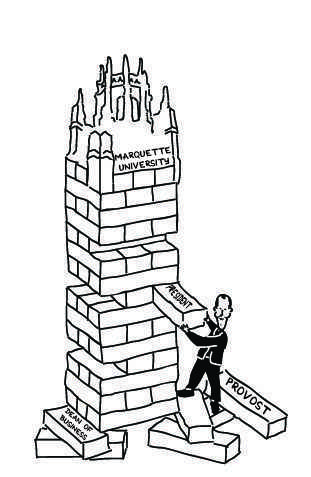
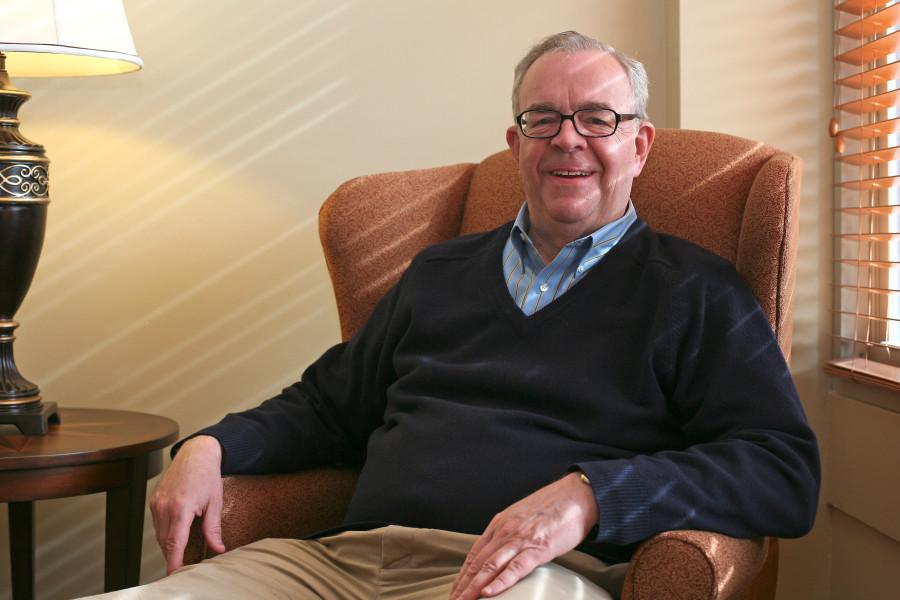
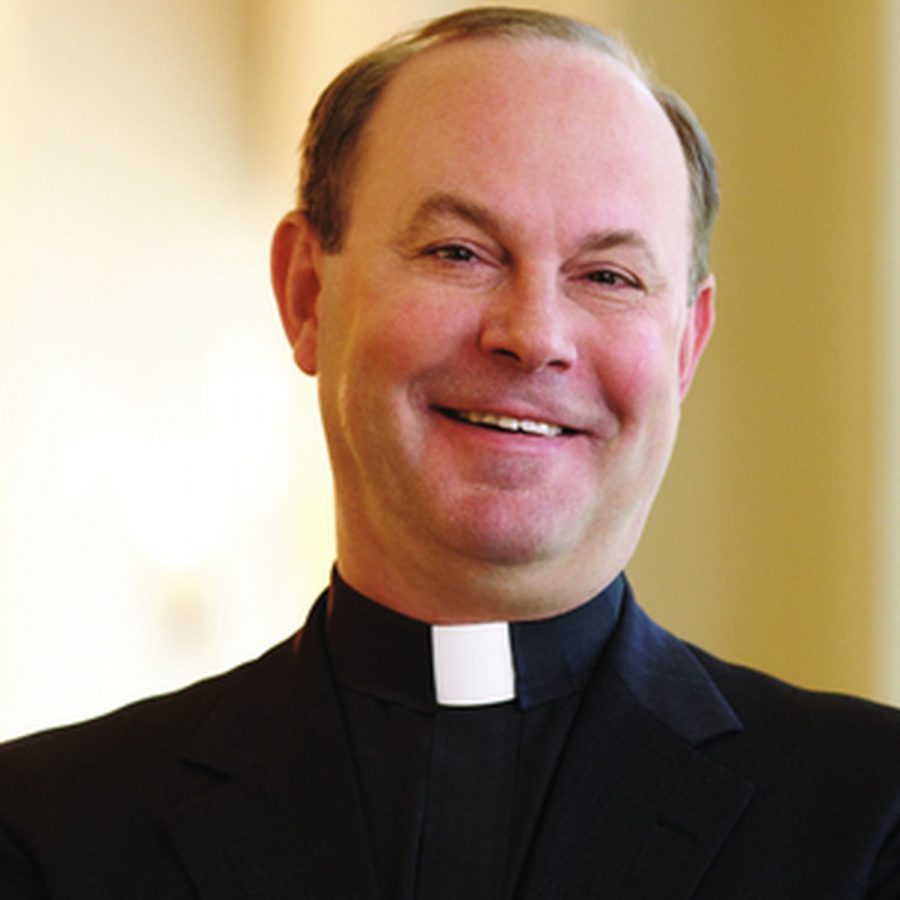
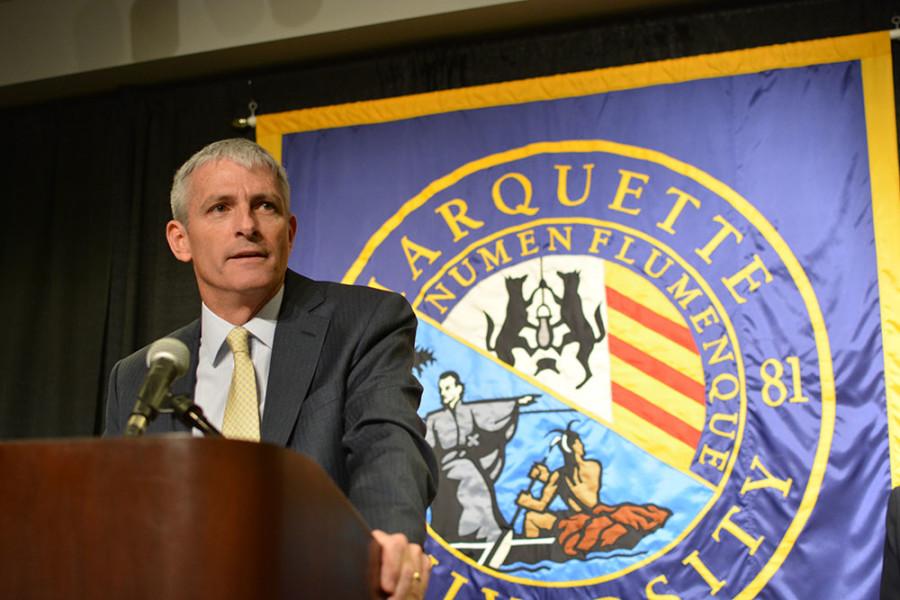
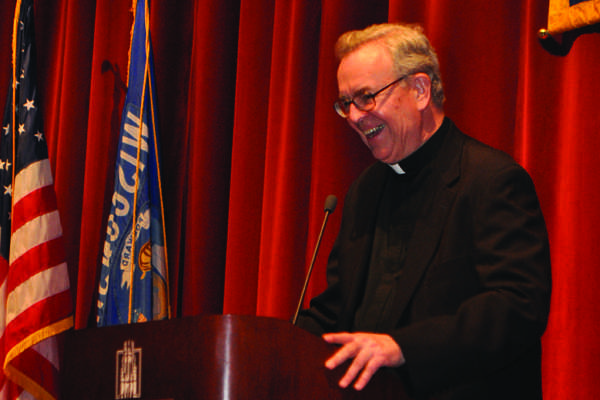
Doc Adams • Feb 12, 2013 at 2:57 pm
To Whom It May Concern —
I think it’s rude and disrespectful to Father Pilarz that The Marquette Tribune on second reference (and following references) to him in a story uses only his last name! I contend that you folks should show some respect to the president of the university and redo your newsroom stylebook to allow for “Father” to be used with his last name! Don’t worry about consistency in style in this regard, and allow for an exception! After all, if the student newspaper of “his university” doesn’t give him at least that much respect, how can he expect it from any others?! Thank you. doc adams, J-’58